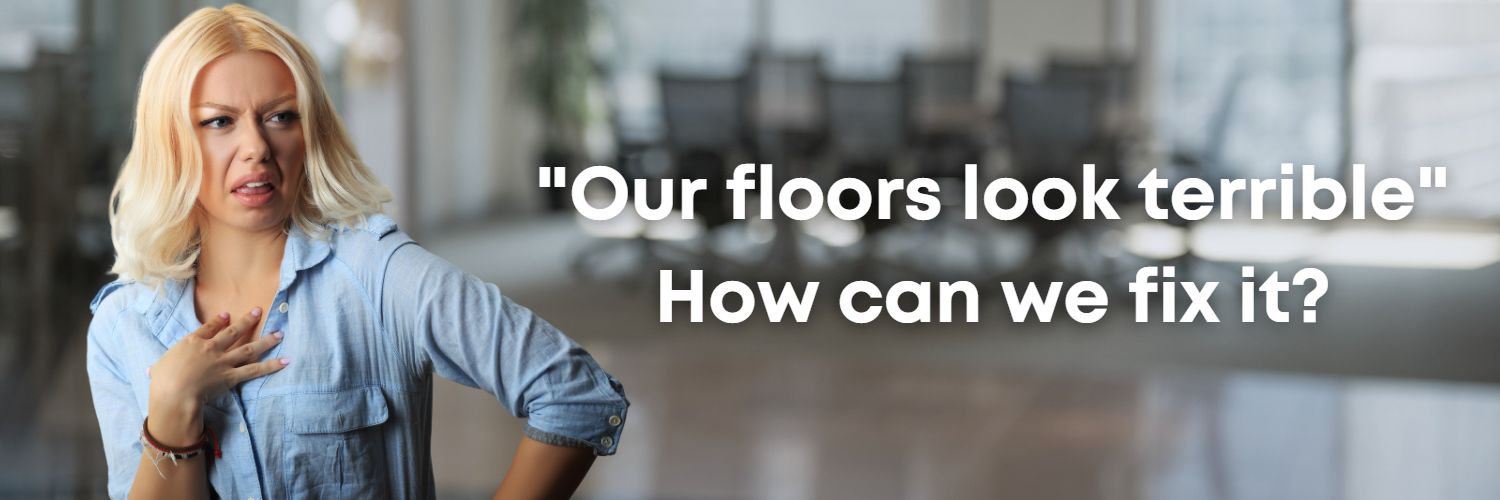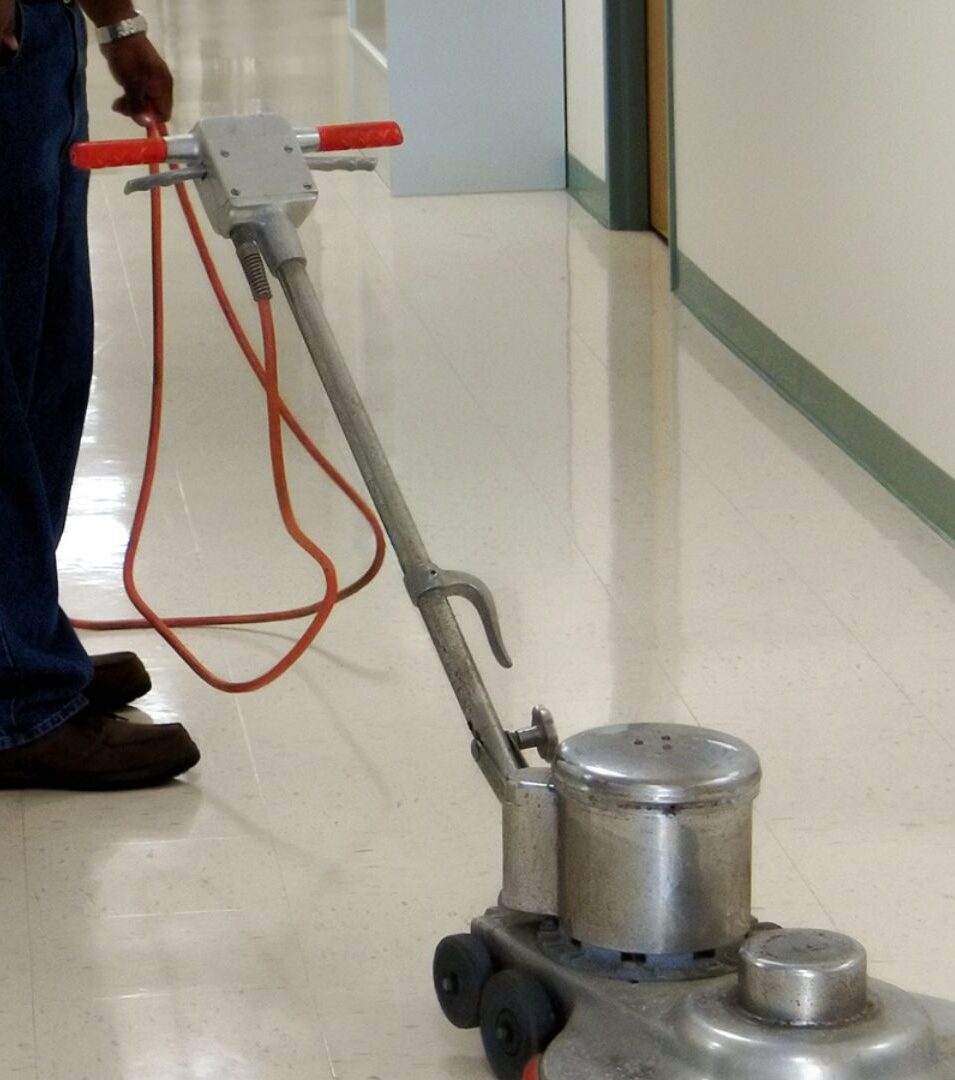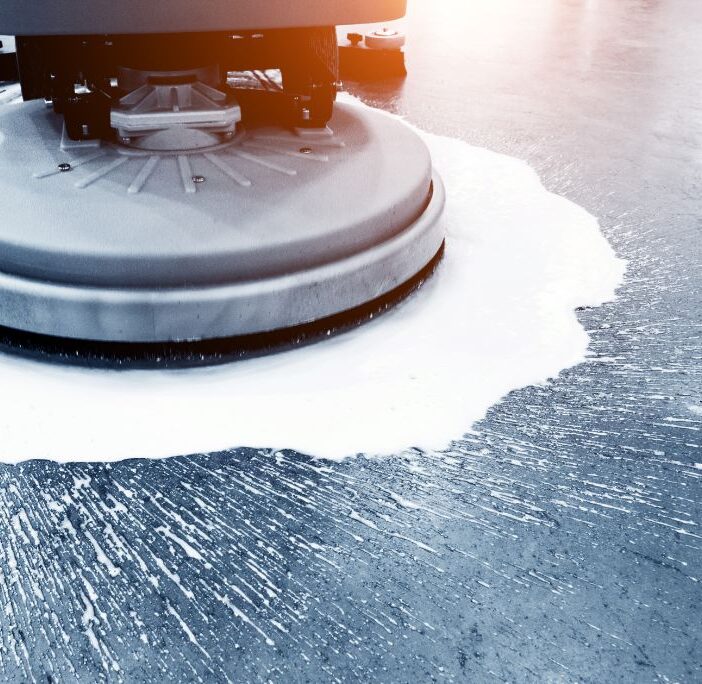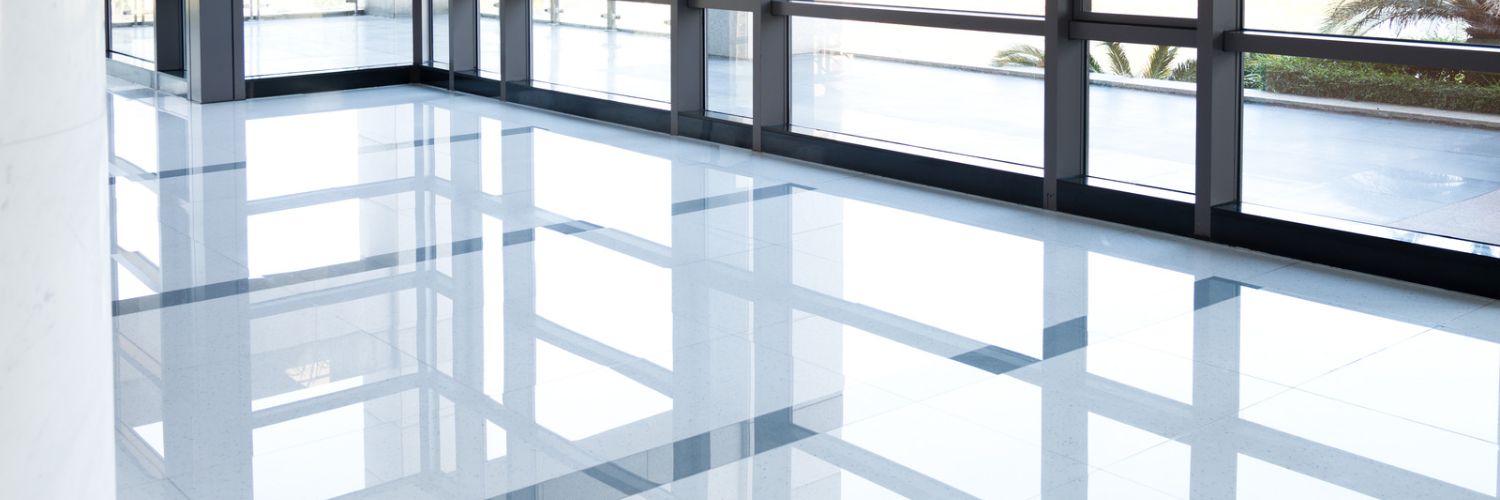
“Our floors look terrible!”
This is a common phrase we encounter when called in by a prospective client to provide a proposal for cleaning services. Besides dirty restrooms and break rooms, there is nothing that draws the ire of building owners more than dull, damaged flooring.
This should come as no surprise to most of us. Think about the places that you go – doctor’s offices, grocery stores, department stores, restaurants – do you notice when the floors are shiny? Do you notice if the floors are dull or dirty?
In this article, I’ll share some information about vinyl composite tile (VCT) flooring and how to maintain the look of these floors.

What is VCT flooring?
Vinyl composite tiles are composed of polyvinyl chloride (PVC) chips formed into solid sheets by heat and pressure. While the surface of VCT feels smooth (because it usually has a sealant – formerly known as wax), the surface is rather porous. Since the surface is porous, it is prone to collect dirt and grit. That is why it is important to always apply and maintain an appropriate amount of sealant (coating) on this type of tile.
What can you do to maintain clean VCT floors?
Try these tips:
- Use Walk-off Mats
Walk-off mats capture dirt and grit from the shoes of people who walk over them, limiting the sandpaper-like grind that happens every time a person walks the floor. In an industrial setting, it is especially important to position mats where team members walk into and out of the shop floor. While the mats won’t catch all the particles, you might be surprised just how much they capture. If possible, find a service that will replace these mats on an ongoing basis, and remind your cleaning team to vacuum them nightly.
- Dust Mop Daily/Damp Mop Often
The best defense against floor dulling is a good offense. The offense includes daily dirt/dust removal using a microfiber mop. Microfiber materials are excellent at capturing a great deal of the dust/dirt on a floor. Next, use a damp mop with mild soap to capture any remaining debris. If the floors are highly trafficked, damp mopping should occur daily. Light foot traffic will require less mopping.


- Buff Occasionally
Floor buffers produce shine by smoothing the surface of your VCT. When a surface is smooth, it tends to reflect more light or shine. Over time, VCT floors develop small “pits” or scratches from daily foot traffic abrasion, scratches from rolling chairs, etc. The buffer, using an abrasive pad and heat from the spinning surface, will smooth the scratches and pits to produce a more reflective surface.
- Restore Annually (in most cases)
Over time, all the scratching, pitting, and buffing will eventually wear off the sealant on your VCT flooring. It is important to restore the surface of the tile by stripping off the remaining old sealant and applying several layers of new sealant. Again, the frequency of this restorative process depends on several factors. Advances in floor sealant have created long-lasting protection. Generally, we suggest at least an annual floor restoration for facilities with medium to high traffic.
With a little ongoing TLC and a good preventative maintenance program, VCT floors can look nice for a long time.

